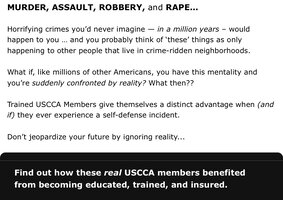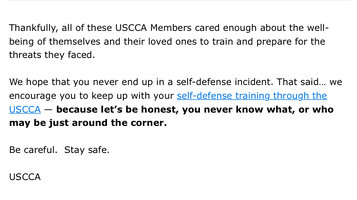During a conversation with a criminal defense attorney experienced in the field of firearms litigation back in 2005 I inquired what one should expect in the unfortunate event they had to engage defense council to mount a self-defense case in answer to a charge of shooting another person.
The attorney informed me that if the facts of the case were clear cut in supporting the plea that the shooting was in fact a case of self-defense, then one would have to pay $50,000 up front to get their legal representation started.
If.......on the other hand........the facts of the shooting situation were in the least bit murky........... then the staring fee would rise to $200,000 to get the defense representation started and the cost would substantially increase depending on just how "murky" the actual facts of the incident proved out to be.
A family member who was once a senior supervising attorney for the state of New York told me that the best professional advice that he could share with me was to try and avoid as much as was possible becoming involved in the court system in the first place as even a not guilty jury decision would in all likelihood cause a tremendous amount of financial pain to me and my immediate family.
The following 2 articles are worth reading if for no other reason that they provide a point of view that has some merit to them:
For the last couple years, there has been an epidemic of mass shootings targeting people in bars, malls, and outdoor parties. These have generally been gang members targeting other gang members. It's spring. We

www.activeresponsetraining.net




![Laugh [laugh] [laugh]](/xen/styles/default/xenforo/smilies.vb/012.gif)